The EU organic label is a quality label certifying that the wines and olive oils we sell comply with EU organic farming regulations, providing for a ban on synthetic pesticides and fertilizers.
“As an entrepreneur, a winemaker and a farmer, I believe that my role and my key function is to encourage the flow of energy between the earth, its fruit and the men and women who live and work on the land each day.”
Faye
Often imitated, never equaled.
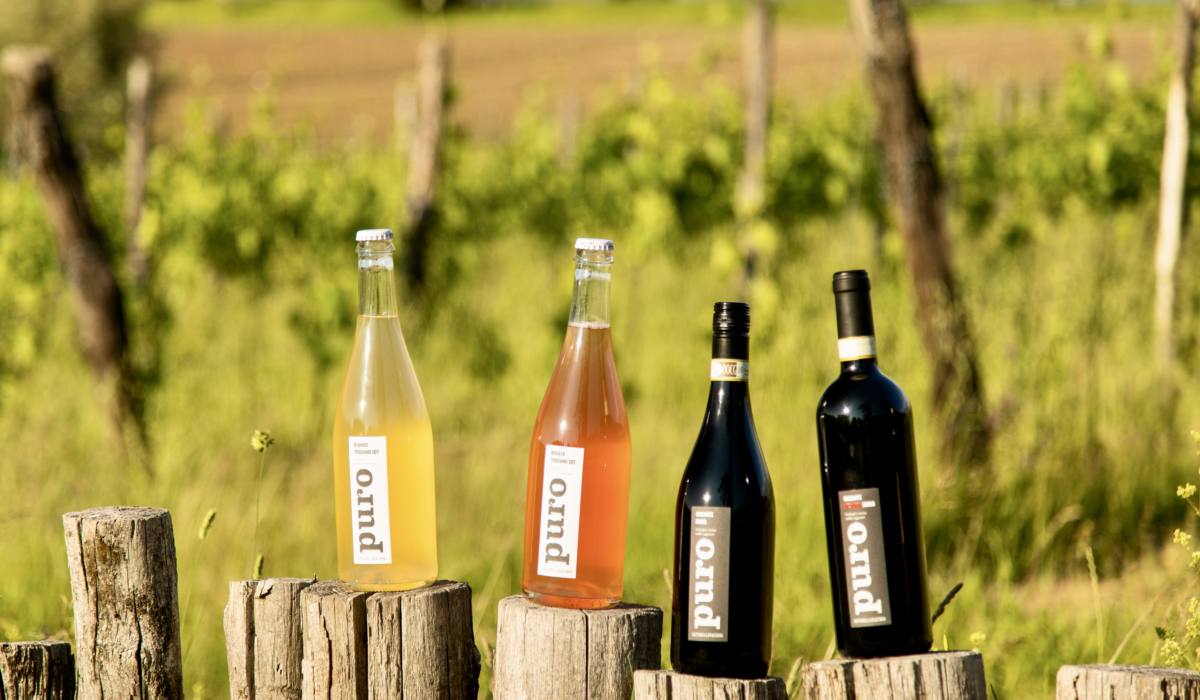
At la Fattoria, we are forerunners in organic farming methods and producing sulfite-free wine.
We were also the first of the Chianti Rufina winegrowers to cultivate the land according to these principles. We have always strived to promote biodiversity and sustainable development. These principles are found in our motto: “Organic Lifestyle”.
In keeping with this approach, Faye is turning her attention to the dictates of biodynamics, laid down by Rudolf Steiner, and is slowly beginning to apply their rules.
Biodynamics makes sense.
“It’s imperative to understand that sustainable development is a process of ongoing improvement and not just a simple goal to be attained.”
Biodynamics is all about understanding and reading nature. It means being aware of how the Earth works as a global system, in which each living organism plays a fundamental and interdependent role in its equilibrium and fertility.
What does this mean for us practically speaking? Here are a few examples.
Water
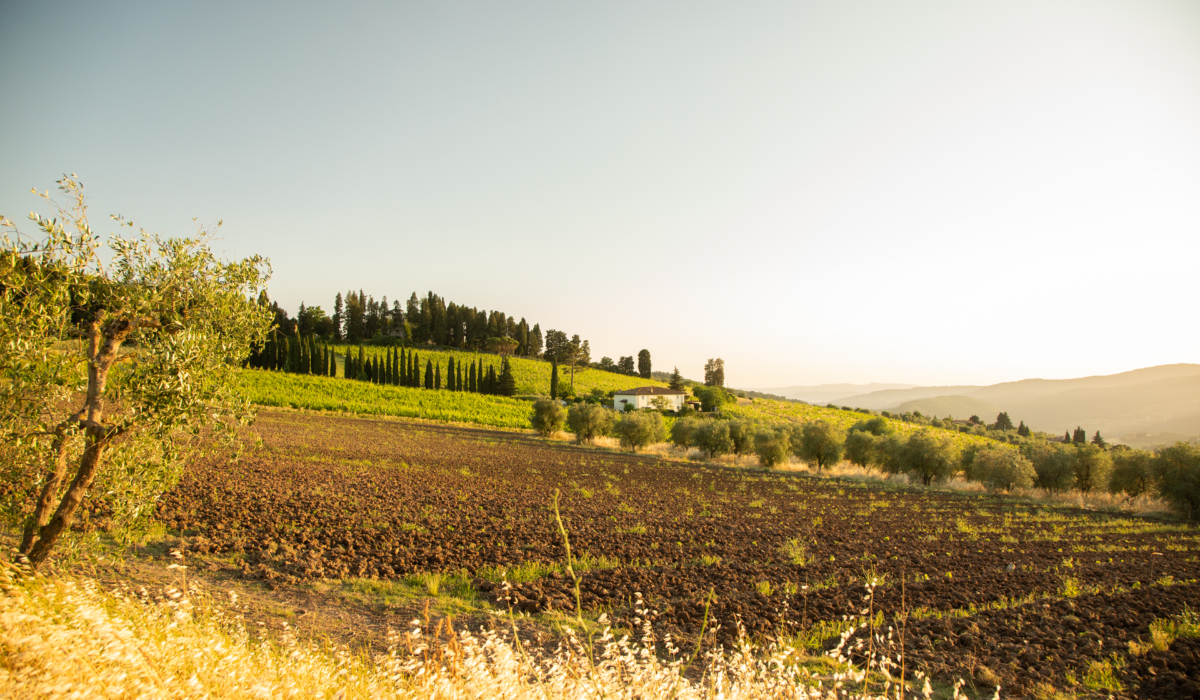
The estate is not connected to the town’s drinking water network. We have to collect water ourselves from two wells, as well as from a number of rainwater collectors. This restriction means that we do not water our vines and olive trees. Furthermore, thanks to biodynamics, we have been able to increase the organic matter content of the soil, revive biodiversity and encourage the proliferation of weeds, enabling us to reduce the evaporation of water in the ground.
Thanks to this approach, we were able to join the Terra & Aqua program, in collaboration with Florence University. By participating in this program as a pilot estate, we demonstrated our ability to only use one liter of water to produce one liter of wine and twenty liters of water to produce one liter of olive oil. These results have been used to draw up technical specifications serving as a reference for all vineyards and olive oil producers committed to a policy of sustainable development.
Vines
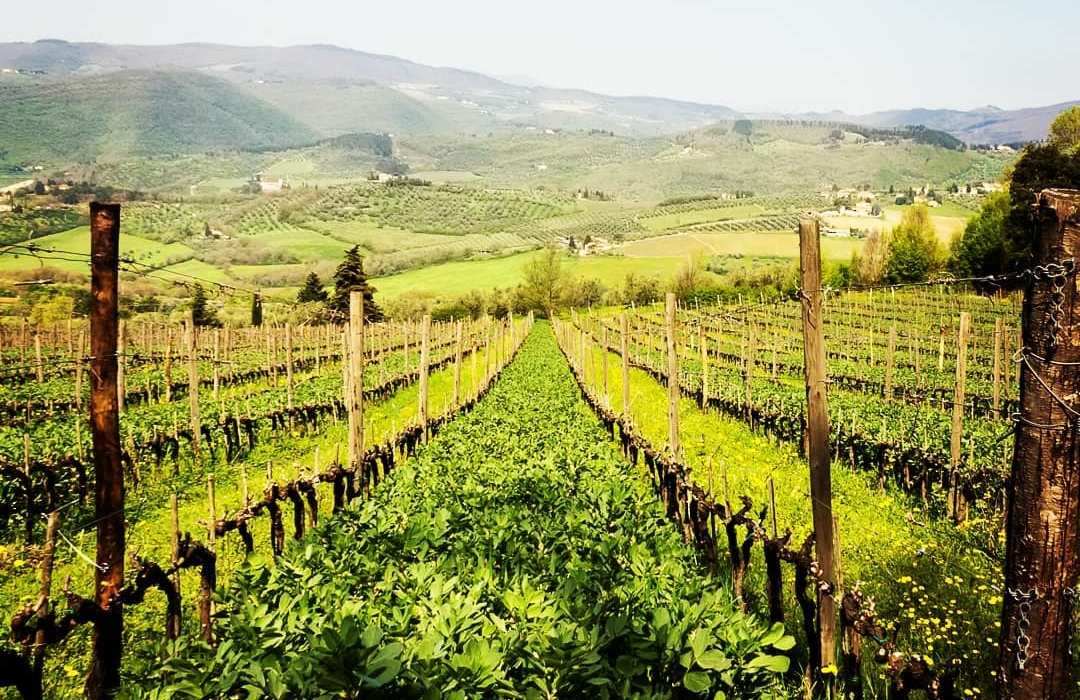
Nature is far more efficient than even the most sophisticated industrial chemistry. Wine cellars are like a natural laboratory in constant evolution. They are brimful of microorganisms such as yeasts, which are responsible for the fermentation of our wines. These yeasts are known as native yeasts. They are best suited for fermenting our wines in the optimal manner, and more importantly, in the way most faithful to our terroir. This is also the reason why we pick each plant by hand, taking the greatest possible care of the grapes, so that they arrive at the cellar undamaged and intact. This means we do not need to add any sulfites, so that the fermentations activate one after another in the most natural way possible. In the same spirit of agroecology, we never burn the vine branches we cut, to avoid creating CO2 emissions. We grind them and add them to our biodynamic accumulation. This accumulation turns into an extremely fertile compost that we spread on the vines and between the olive trees. We also use lighter bottles with less glass – never exceeding 500 grammes.
But you know as well as we do: “What matters the jug, if drunkenness be within !”
Women and men
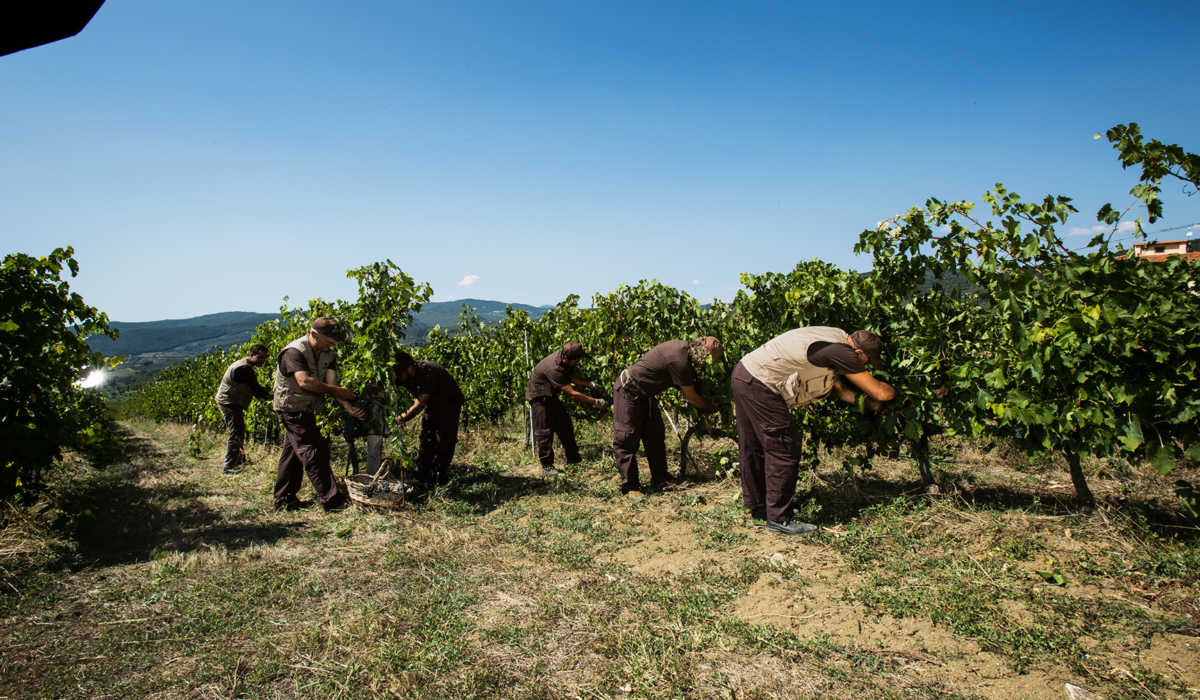
Sustainable development is in action both in our vineyard and within our team. We have implemented continuous training programs adapted to all so that everyone can progress and advance hand-in-hand with the Estate. We regularly hold our meetings over a glass of wine and we work to safeguard the health and safety of our staff members.
Our wine and olive oil production team is made up of six permanent staff members and backup staff who help us with cutting during the grape and olive harvests. For picking, “brucatori” – or people who work in a different sector during the year – are paid in enough olive oil to last their family an entire year. The same people come year in, year out to help us. They harvest the same piece of land each time. Olive picking is a festive affair, when family and friends gather at weekends for the harvest.
But that’s enough words, don’t wait any longer, come and experience the Organic Lifestyle with family, friends or that special someone !
Sustainable viticulture
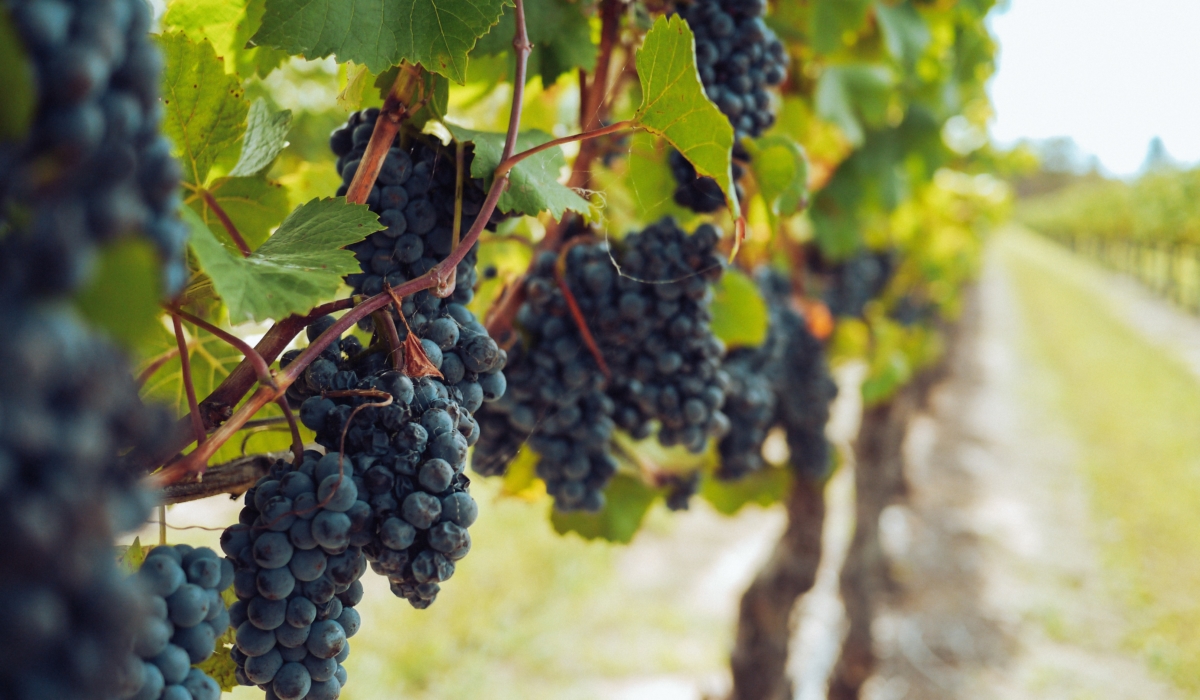
Since 2018, La Fattoria Lavacchio has been part of the sustainable viticulture project [VIVA]. In this context, we continually track and check four indicators: the air (the climate footprint), water (consumption), vineyard (production impact) and territory (economic, social and cultural impact). By complying with stringent guiding principles, we create and promote methods which will serve as an example for the sector’s future.
The EU Ecolabel is an environmental excellence label awarded to products and services which meet high environmental standards throughout their life cycle. Learn more
The Italian Agri-tourism classification provides the public with an overall idea of the maximum level of comfort, variety of services and quality of surroundings each company awarded the label offers. Learn more
The aim of the VIVA project is, “the sustainability of viticulture in Italy”, striving to improve sustainability performance in the wine-growing sector by analyzing four indicators: air, water, territory and vines. Learn more